This morning we packed up and moved on from Camping Iria Beach. After a few aufwiedersens, in this corner of a foreign field that is forever Germany*, we were on our way.
We were soon, predictably, on a roller coaster ride through the ever present mountains. Basil rattling and creaking over pot holed roads. As usual the only animals to be seen were goats. At one point we saw goats being herded by a sheep dog, but then after a discussion we decided it couldn’t really be a sheep dog, it must be a goat dog!
Our progress was temporarily brought to a sudden halt by a most unexpected animal. A tortoise crossing the road at its own, stately, pace. After it crossed we continued and as we passed the tortoise it immediately went into its shell. All well and good when your off the road, but not an advisable tactic when confronted with a car.

Tortoise Stops Play
The ancient Greek settlement of Epidavros was our initial target today. Or to be more precise the amazingly complete theatre. Epidavros was a sort of health resort or spa for the ancient Greeks and thereafter the Romans. While the ruins of the settlement are mostly unremarkable, the theatre, built in about 400 BC is one of the best preserved in the world.
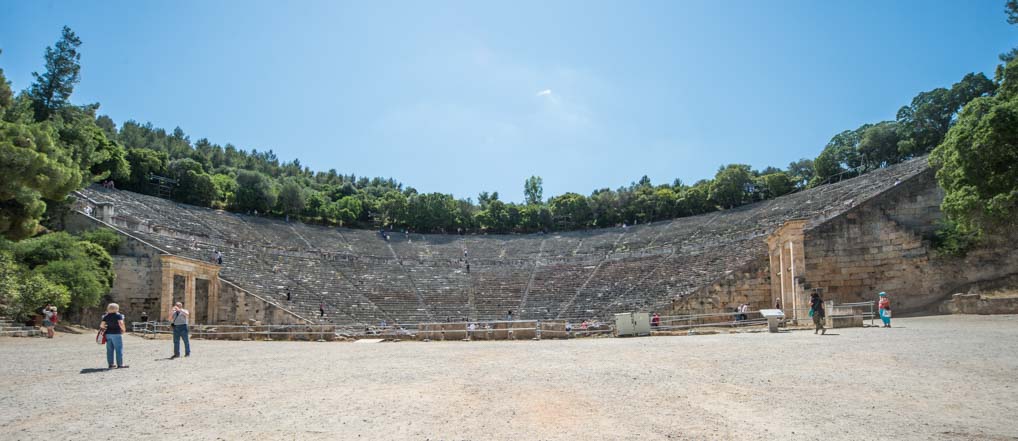
Epidavros Theatre
Basil settled himself in some shade and Sarah and I set out with the dogs. We knew the dogs would not be admitted but aimed to take it in turns to sit with the dogs while the other toured the theatre.
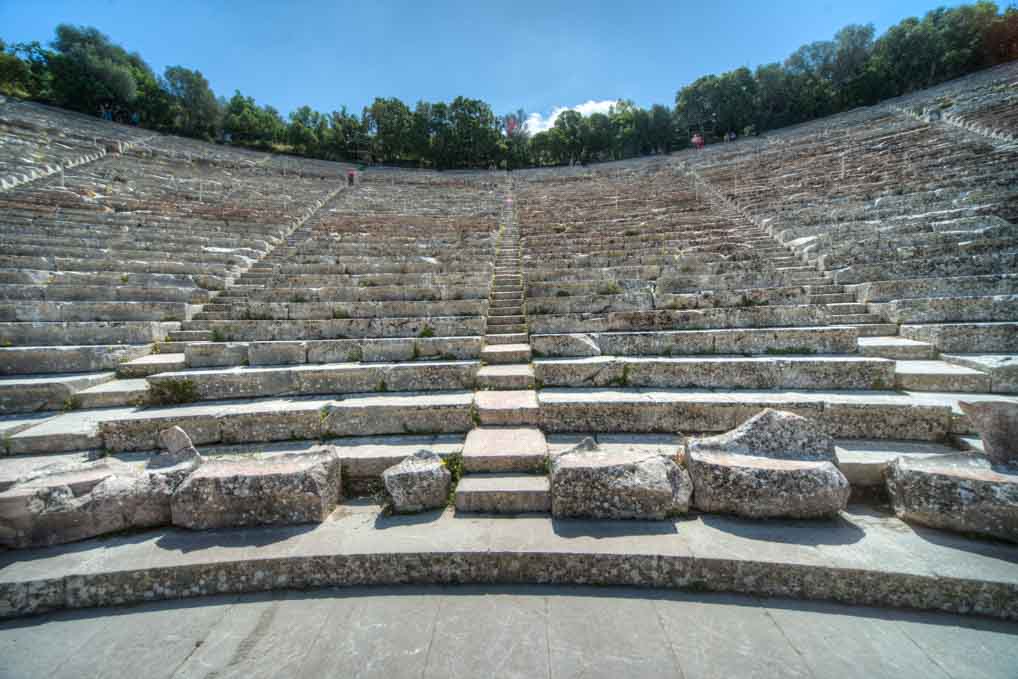
Epidavros Theatre
I went in first and it is, without doubt, the most impressive ancient theatre I have ever visited, and I’ve visited a few. There has been some restoration done, but it doesn’t show. It is to all intents and purposes complete. Over 50 tiers of seats and a capacity of about 6,000.
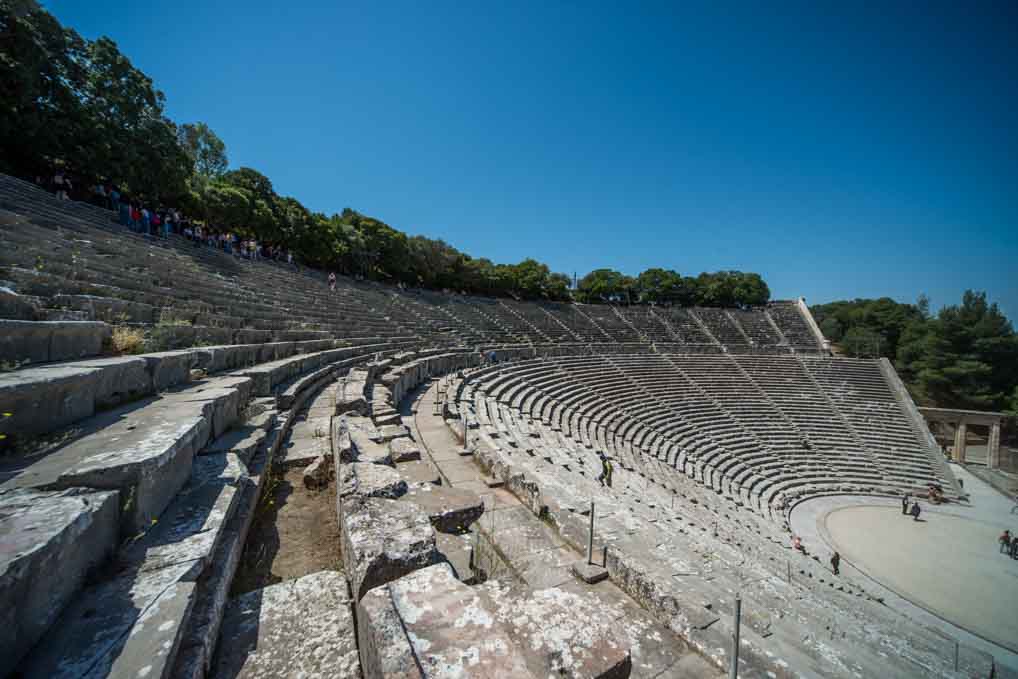
Epidavros Theatre
The theatre is also renowned for its acoustics. Apparently audiences in the back row could hear a coin drop on the stage. That may be exaggeration, but I walked to the top row and it was certainly easy to hear people speaking down on the stage.
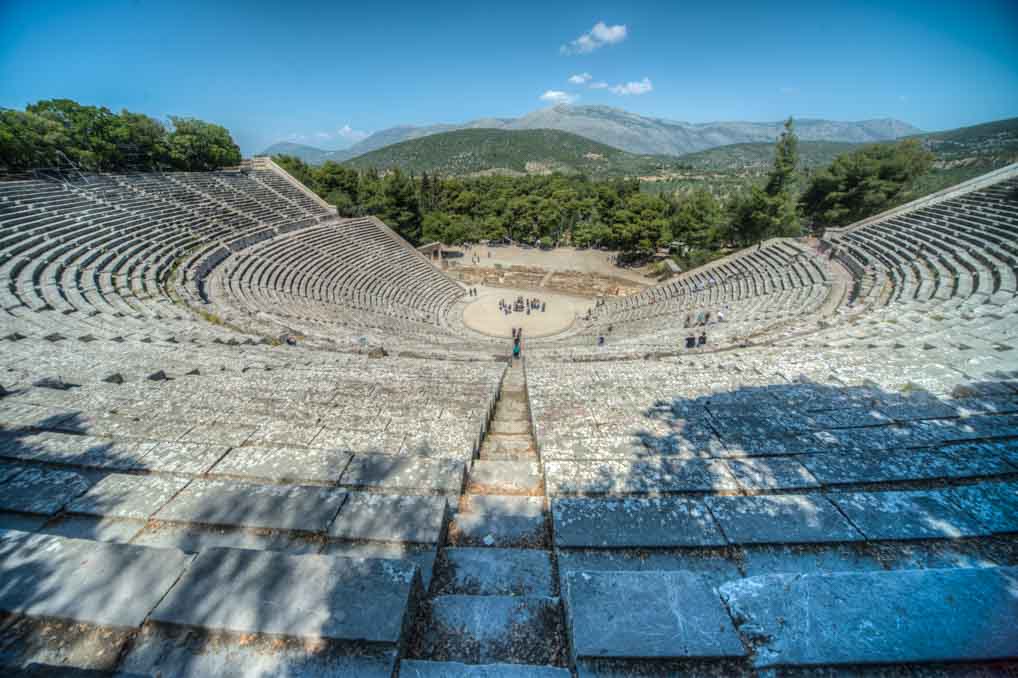
Epidavros Theatre
Sarah, meanwhile, had retreated to Basil with the dogs, because of some aggressive feral canines. So I took my turn with the dogs while Sarah looked round. We didn’t bother with the rest of the site, because having visited Olympia, Sparta and previously Athens and with Delphi to come in a day or two, we felt ruined out.
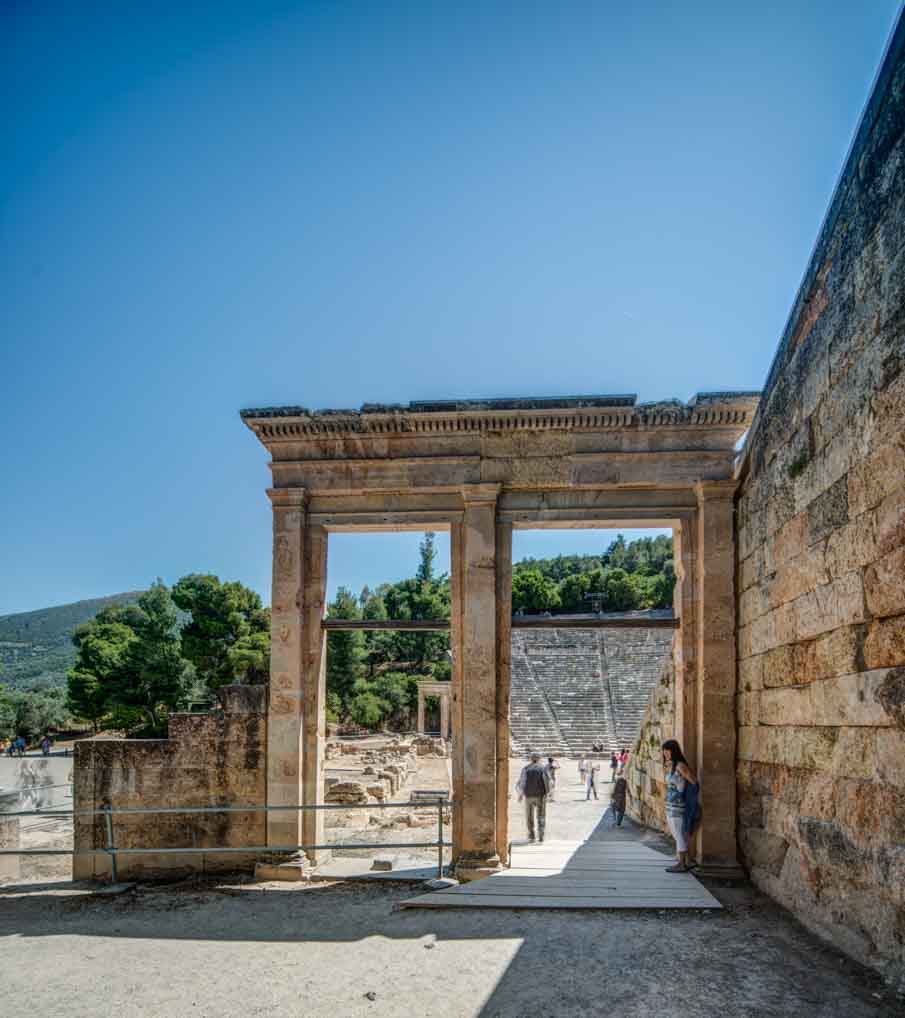
Epidavros Theatre
Basil pointed his nose in the direction of Corinth and we continued our journey. It’s a fairly new road and runs along the coast, which is peppered with small harbours and inlets, while the road proceeds several hundred feet above the sea.
I pulled Basil over into a dusty layby for some lunch and we found ourselves with a view over a small inlet, full of fish farming nets. There is little to choose in beauty between the location of these fish farms and those of the salmon farms in Scotland, however the difference in weather, for most of the year will be stark
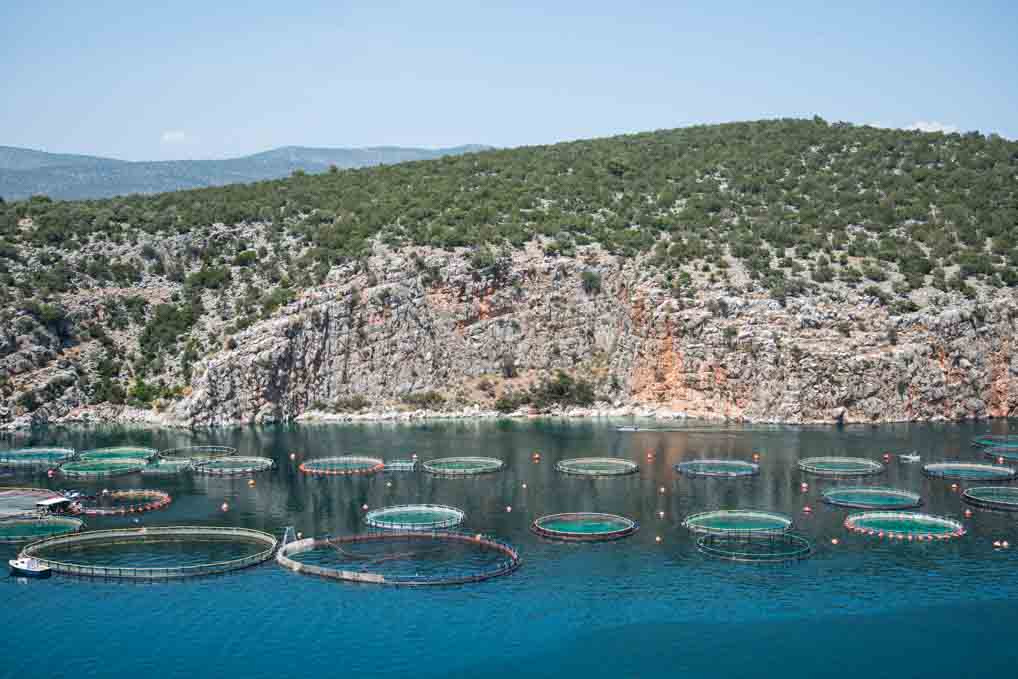
Fish farm
Basil’s cupboards were almost bare, so after lunch we made a stop at LIDLs in Corinth, only to be greeted, yet again by beggars. After promising a particularly unpleasant looking man the trolley money when we had finished, we did our shop. Of course he was still lurking around Basil when we emerged, but seemed satisfied when I gave him the trolley, complete with one euro coin.
Our stopping point for the night was planned to be Corinth, but we had a couple of options. I was aware that Corinth had a private camper stop for €10 per night, but I also knew that people had wildcamped in the car park at Acrocorinth. Acrocorinth is an impressive castle perched on top of a 1600 foot hill next to the ancient Greek city of Corinth. We decided to explore the wildcamping option first. Basil hauled his large torso up the 1,600 feet with his fuel gauge warning he was out of diesel. Only a few minutes earlier, on the flat he seemed to have plenty, so I hope the reading was distorted by the steep gradient. If not we can always coast down tomorrow.
On arriving at the car park we immediately decided to stay. Acrocorinth had closed at 3pm so we had the place to ourselves. From Basil, in one direction we have a birds eye view over the Gulf of Corinth and in another, only 50 metres or so away, we have the massive walls of Acrocorinth.
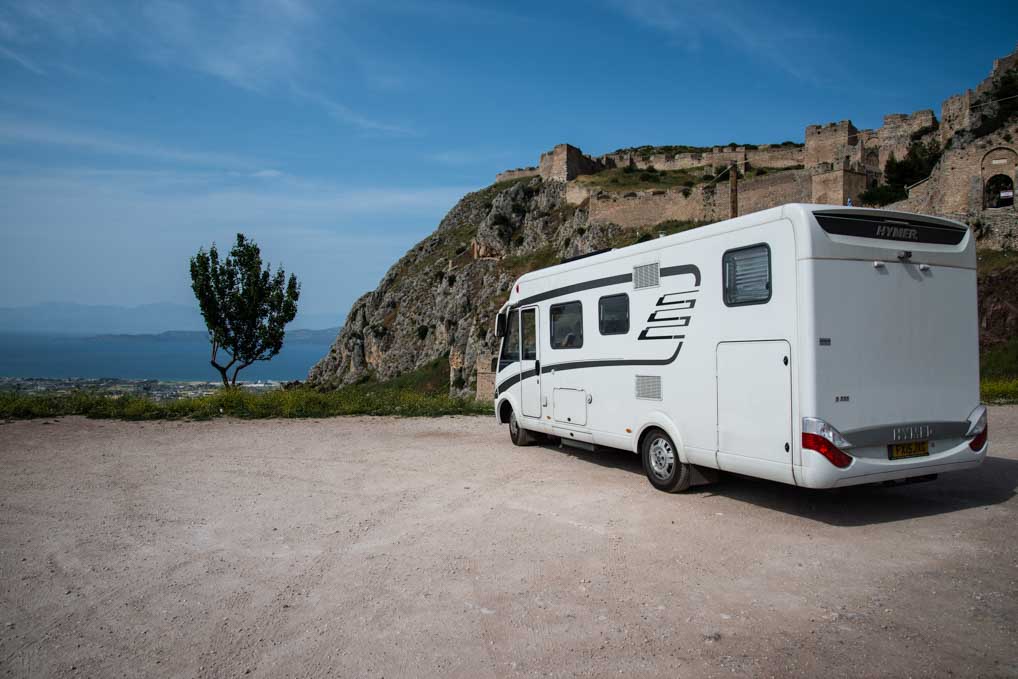
Basil’s spot at Acrocorinth
More about Acrocorinth tomorrow, but suffice it to say that it has been in everyone’s possession, right up to the Ottomans.
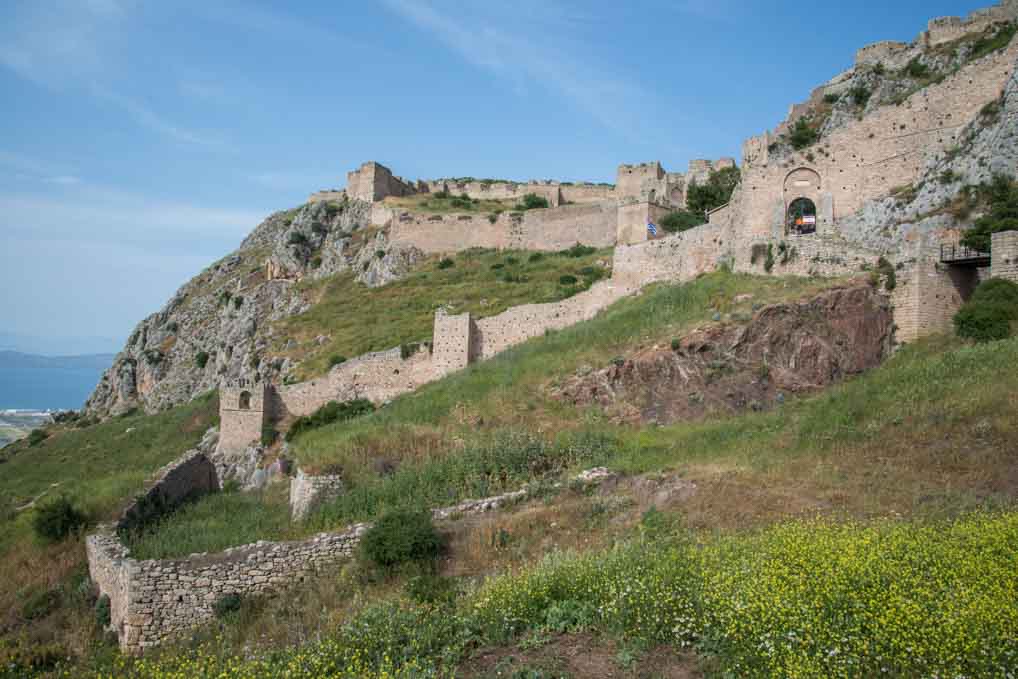
Acrocorinth
*Apologies to lovers of Rupert Brooke
